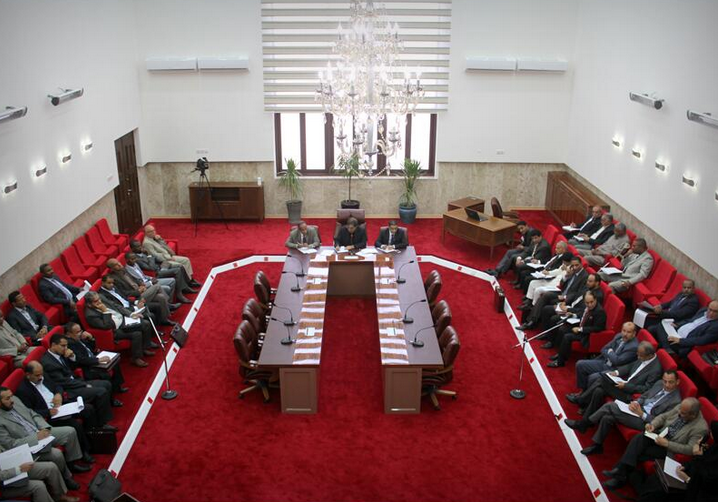Support for decentralization is wider spread than support for federalism, with recent public opinion polls finding considerable support for some form of decentralization in the new constitution. The second draft calls for political, administrative, and fiscal decentralization in a Libya divided into governorates and municipalities.
Under this system, local governmental units would enjoy a legal personality and administrative and financial independence. In support of decentralization, Libyans in the eastern part of the country also have demanded that some ministries or state firms—notably the National Oil Corporation—be headquartered in Benghazi. In June 2013, the Libyan government promised to move some state companies to Benghazi, but no action was taken and the current draft is mute on this point.
Women often played new and unfamiliar roles in the February 17 Revolution, but in post-Qaddafi Libya, they have struggled to retain the responsibilities and rights they thought they had won during the revolution. Faced with a conservative backlash that has threatened to restrict or deny basic rights, Libyan women have fought to ensure a future grounded in inclusion, participation, and gender equity. The second draft of the constitution offers some hope, declaring Libyan men and women equal before the law, and all Libyans, men and women, guaranteed the right to vote and hold office.
The second draft also contains a special provision for women, guaranteeing them no less than 25 percent of the total seats in elected councils for a period of three consecutive electoral cycles. In post-Qaddafi Libya, women have been underrepresented on official bodies, often with the excuse that they lacked experience; consequently, this special provision should encourage and facilitate their wider involvement in public affairs.





